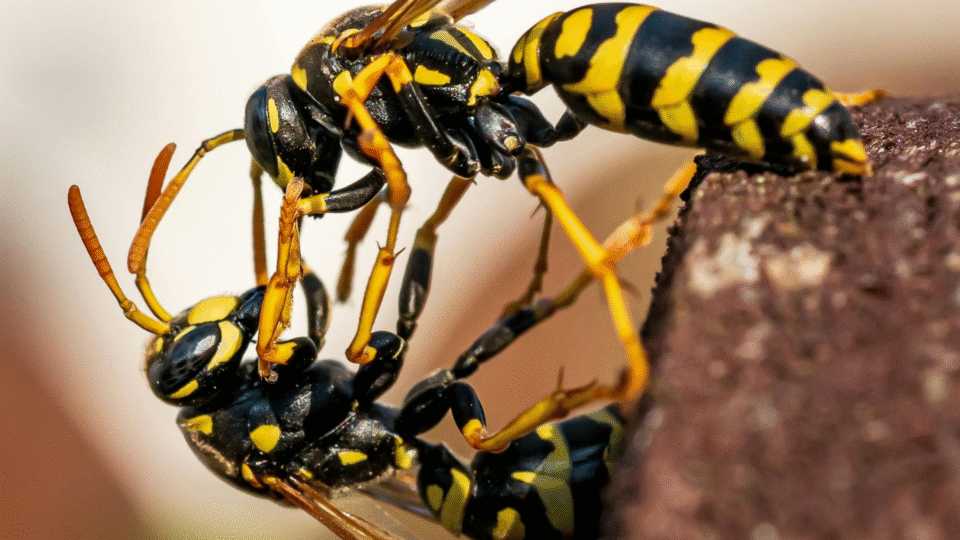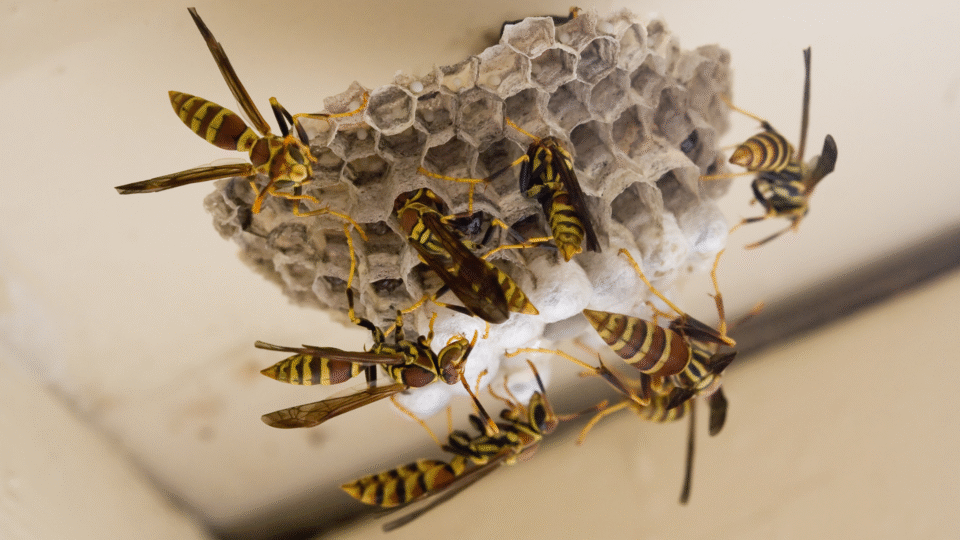Stinging Insects Removal in NJ
Serving Monmouth, Ocean, Middlesex, and Union Counties
Stinging insects like yellow jackets, paper wasps, and hornets pose real risks to families and pets—especially in late summer and early fall when nests are at their peak. Whether you're dealing with an active infestation or want to prevent future problems, Bee-Gone Termite & Pest Control provides safe, effective solutions tailored to your property and level of risk.
We provide expert stinging insect control for homes and properties throughout Monmouth, Ocean, and Union Counties.

Common Stinging Insects We Treat
1. Yellow Jackets
- Identification: Small (~½ inch) with bright black-and-yellow bodies and a narrow waist.
- Behavior & Risks: Build nests underground, in walls, or attics. Very aggressive—especially late summer. Multiple stings can trigger allergic reactions, especially near doors, trash bins, or playgrounds.
- Control & Prevention: Seal gaps around the home, secure trash, and remove fallen fruit. Place traps away from people. Pros safely neutralize nests and seal entry points to prevent return.
2. Paper Wasps
- Identification: Slender, ~¾ inch long, with long legs and reddish to metallic blue coloring.
- Behavior & Risks: Nest under eaves, in attics, or on branches. Less aggressive, but will sting if threatened.
- Control & Prevention: Remove early nests in spring. Treat eaves to stop nesting. Pros apply treatments during cool hours and help prevent future activity.
3. Hornets
- Identification: Larger (up to 1¼ inches), often with white or red markings. Bald-faced hornets are common in NJ.
- Behavior & Risks: Build aerial nests and swarm if disturbed. Multiple stings are dangerous for sensitive individuals.
- Control & Prevention: Check for aerial nests in spring. Avoid sweet foods outside. Pros remove nests at night and seal up nesting spots to keep hornets away.
Why Stinging Insects Are a Serious Concern
Unlike honeybees, which rarely sting unless provoked, yellow jackets, wasps, and hornets are territorial and aggressive — especially during late summer and early fall. Their nests often go unnoticed until activity spikes, and some species can sting multiple times. Homeowners often discover them:
- In attic vents, sheds, and wall voids
- Under decks, railings, and playground equipment
- Inside bushes, shrubs, or tree limbs
- Near trash cans or pet food
Do-it-yourself sprays rarely eliminate the entire colony and can provoke dangerous swarming. That’s why professional treatment is the safest solution.
Our Stinging Insect Control Process
- Inspection & Species ID – We locate the nest and identify whether you're dealing with yellow jackets, paper wasps, or hornets.
- Targeted Nest Treatment – Using low-odor, EPA-approved products, we treat nests directly and apply perimeter protection to prevent new colonies.
- Nest Removal (when accessible) – We remove accessible nests to prevent reuse and discourage future nesting.
- Follow-Up & Seasonal Recommendations – For high-risk areas, we offer seasonal programs to protect your home through peak sting season.
Ready to Reclaim Your Yard?
Don’t let stinging insects take over your outdoor space. Whether you're in Middletown, Asbury Park, Freehold, or Union County, Bee-Gone Termite & Pest Control provides expert service to eliminate nests and reduce risk all season long.

